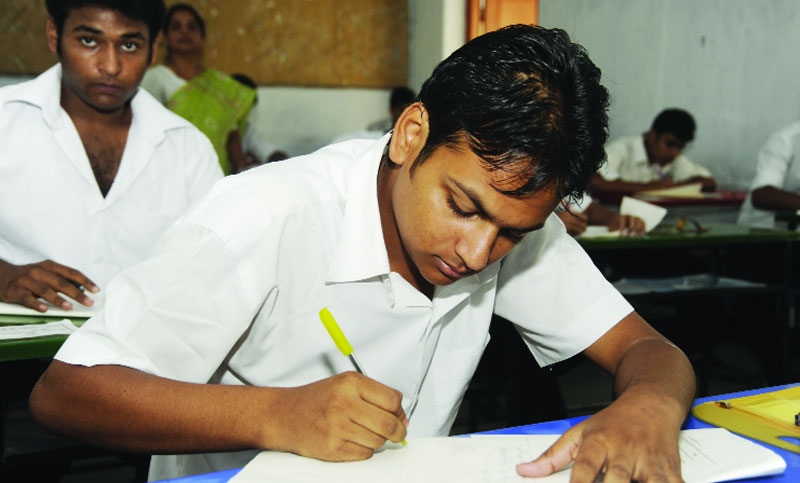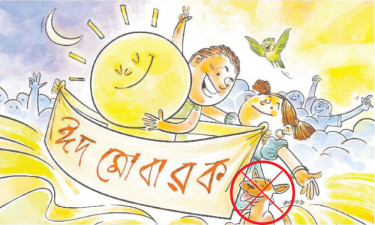R e a r r a n g e m e n t
Rearrange the following sentences to make a coherent order.
1. (a) He asked him where God was.
(b) He praised him highly.
(c) Once a lad went to a famous teacher.
(d) The teacher thought highly of the boy’s understanding.
(e) The lad replied that he would answer if he would tell where he is not.
(f) The boy devoted himself in learning knowledge.
(g) He begged to instruct him in the arts and sciences.
(h) He agreed to teach the lad.
(i) He had expressed his desire to acquire knowledge.
(j) The teacher wished to find out the ability of the boy.
2. (a) As a student, Luther King was brilliant.
(b) He denoted all the money for the development of the Negro Nation.
(c) After marriage, Luther King worked as a clergyman in the Baptist Church of Alabama.
(d) He was born on 15th January 1929 in the Atlanta city.
(e) He was shot dead in 1966 when he was only 37 years old.
(f) He was awarded Nobel Prize for leading the racial problem of America in a non-violent and peaceful way.
(g) In this time, he married an extraordinarily learned woman called Corotta Scott.
(h) Martin Luther King Jr. was a great leader in the history of freedom and rise of the Negro Nation.
(i) He was imprisoned for his movement against the colour difference.
(j) He obtained his doctorate degree from Boston University.
3. (a) He enrolled at the Islamia College, a well-respected affiliated to the University of Kolkata.
(b) Mujib became politically active when joined the All India Muslim Federation in 1940.
(c) Two years latter he took admission in class four at Madaripur Islamia High School.
(d) He returned to school after four years owing to the severity of the surgery and slow recovery.
(e) He joined the Bengal Muslim League in 1941.
(f) In 1929, Mujib entered into class three at Gopalganj Public School.
(g) In 1946, he became the general secretary of the Islamia College Students Union.
(h) However Mujib was withdrawn from school in 1934 to undergo eye surgery.
(i) Bangabandhu Sheikh Mujibur Rahman was born in Tungipara, a village in Gopalganj district.
(j) He was the third child in a family of four daughters and two sons.
4. (a) They were aliens in their own country and were subjected to all sorts of indignities.
(b) The blacks were treated cruelly.
(c) The great leader vowed to put an end the inhuman practice.
(d) They were denied all basic human rights.
(e) Even dogs received a much better treatment than the blacks.
(f) Eventually, the great leader realized the goal of liberating his own people.
(g) He was thrown behind the prison bar.
(h) Nelson Mandela was the great leader of South Africa.
(i) But the oppressive rulers could not break the spirit.
(j) In fact, he was one of the greatest leaders of the world who struggled against apartheid throughout his life.
5. (a) A number of people applied for the job.
(b) Once there lived a Sultan in a country.
(c) They came through a passage where gold coins were kept.
(d) Then he found the desired man.
(e) When they all arrived, the Sultan asked them to dance.
(f) He wanted to appoint an honest man as his tax collector.
(g) All the applicants blushed and refused to dance except one.
(h) The applicants were asked to meet the Sultan one by one.
(i) So, he asked for the wise counsellor’s advice.
(j) Then he invited applications.
6. (a) She was carrying 1316 passengers and a crew of 891.
(b) So, she was regarded as unsinkable.
(c) The great Titanic was sailing for New York from Southampton on April 10, 1912.
(d) At that moment, the Titanic was sailing across the icy waters of the North Atlantic.
(e) Four days after setting out, a great disaster happened.
(f) At one moment, a huge ice-berg was spotted very close to the ship.
(g) At that time, she was the largest ship in the world built in a very special way.
(h) The great ship turned sharply to avoid a collision.
(i) So, the captain realized to his horror that the Titanic was sinking rapidly.
(j) Five of the ship’s sixteen watertight compartments were totally damaged by the collision.
7. (a) Alexander asked him how he would like to be treated.
(b) Alexander, the king of Macedon, crossed the Khyber Pass and reached India.
(c) Porus came forward with his men and arms in order to defend his land from the attack of Alexander.
(d) here ruled a king named Porus.
(e) He knew how to respect a bold man.
(f) Then he came to the plain of the Punjab.
(g) Alexander was pleased with Porus for his bold reply.
(h) He was brought before Alexander.
(i)‘Like a king,’ was the reply of Porus.
(j) But unfortunately he was defeated in a battle and taken prisoner.
8. (a) William Somerset Maugham, a British writer, was living in Paris.
(b) It was twenty years ago.
(c) The writer was flattered and he was too young to say ‘no’ to a woman.
(d) In this busy city, the writer was earning barely enough to keep his body and soul together.
(e) In the letter, she said that she was passing through Paris.
(f) After reading the book, she wrote to him about it.
(g) He answered, thanking her, and presently he received another letter from her.
(h) Once a lady read one of his books.
(i) She also wrote that she would like to have a chat with the writer.
(j) Paris was a busy city and there the writer had a tiny apartment in the Latin quarter overlooking a cemetery.
Answer
1. c-i-g-j-a-e-d-b-h-f
2. h-d-a-j-g-c-i-f-b-e
3. i-j-f-c-h-d-a-b-e-g
4. h-j-b-a-d-e-f-c-g-i
5. b-f-i-j-a-h-c-e-g-d
6. c-g-b-a-e-d-f-h-j-i
7. b-f-d-c-j-h-a-i-g-e
8. b-a-j-d-h-f-g-e-i-c
।





